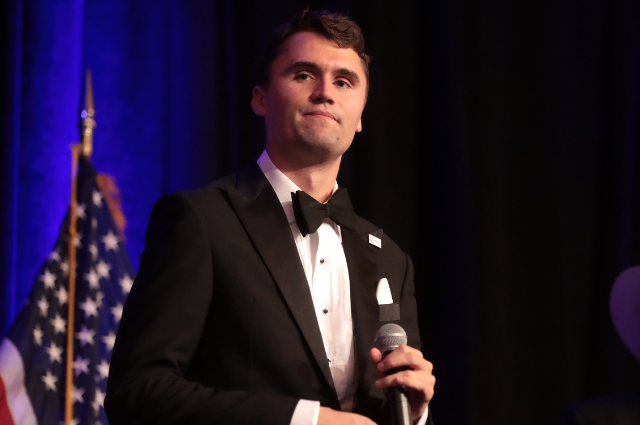The shocking killing of Charlie Kirk, the outspoken conservative activist and co-founder of Turning Point USA, is more than just the loss of a political firebrand. It is a chilling reminder that the fault lines of America’s political polarization have now crossed into deadly violence. The tragedy in Utah is not merely about one man’s death and it is about the erosion of the democratic space where ideas are debated rather than silenced by bullets.
A Debate Turned Deadly
Charlie Kirk was no stranger to controversy. His “Prove Me Wrong” events were deliberately provocative, designed to challenge young minds and often ignite fierce debates. He thrived on confrontation and not for the sake of hostility, but to push students into defending their beliefs. Yet, in Utah Valley University’s quadrangle where over 3,000 attendees had gathered under the banner of “The American Comeback,” the conversation was replaced by chaos. A shooter, perched on a rooftop more than 100 yards away, turned an intellectual battleground into a crime scene. The symbolism is impossible to ignore that is a marketplace of ideas interrupted by gunfire as if dissent is no longer met with argument but with violence.
The Search, the Confusion, and the Arrest
The aftermath revealed not just the horror of the act, but also the confusion of law enforcement scrambling to identify the suspect. Early reports suggested arrests had been made, only for the FBI to later admit that suspects had been questioned and released. The uncertainty deepened the sense of unease ; was the killer still at large while the public was left guessing?
It was only later, thanks in part to an unusual alliance of faith and law enforcement, that a breakthrough emerged. According to President Trump, a minister played a critical role, convincing the suspect’s father to persuade his son to surrender. In an age where suspicion about institutions runs high, the involvement of a religious leader in bridging trust between family and authorities is a rare glimpse of cooperation and humanity.
Political Violence and a Dangerous Precedent
The assassination of Charlie Kirk must not be brushed aside as another act of senseless gun violence. It is, in every sense, a political killing. Kirk was not targeted randomly. He was a prominent figure in America’s conservative movement, closely allied with the President Trump, and a constant voice against progressive politics. To silence such a voice with a bullet is not only an attack on a man, but also an assault on democracy itself.
Political violence thrives when polarization reaches its breaking point. When disagreements are no longer settled by debate, ballots, or civic engagement, but by intimidation and force, the very foundation of a democratic society trembles. America has seen political violence before and from the attempts on civil rights leaders to the storming of the Capitol but this killing adds another chapter to a growing pattern of extremism.
A Nation Reacts and but Will It Change?
The reactions from leaders across the spectrum were swift and unanimous. Both Republicans and Democrats condemned the attack. President Trump called it an “assassination,” while Utah’s Governor Spencer Cox underscored the dangers of letting political passions turn into hatred. Kirk’s body was flown back to Arizona aboard Vice President JD Vance’s plane — a gesture that recognized not just his political stature, but also the national weight of the tragedy.
Yet, condemnation is not enough. America has long been caught in cycles of outrage that fade too quickly into forgetfulness. From mass shootings to political assaults, each new tragedy sparks a brief conversation about unity and civility, only to be drowned out by the next headline. The real test will be whether this moment forces a reckoning with the escalating toxicity of political culture.
The Bigger Lesson
Charlie Kirk’s death raises uncomfortable questions. Have we reached a point where disagreement is treated as a crime? Is the battlefield of ideas being replaced by literal battlefields? And most importantly, how much longer can democracy survive if its participants fear for their lives while speaking in public?
Regardless of one’s opinion of Kirk’s politics, his assassination is a loss for the principle of free speech. If his ideas were flawed, they should have been challenged, debated, and disproven - not silenced with violence. The future of democracy depends on the ability of citizens to confront opposing viewpoints with reason, not rage.
The killing of Charlie Kirk is more than a personal tragedy or a partisan story. It is a warning siren for America. If political violence becomes normalized, the country risks losing the essence of what makes it a democracy. The right to speak, to disagree, and to persuade without fear of deadly revenge.
Kirk’s final debate in Utah ended not with arguments exchanged, but with shots fired. That transformation from words to violence is the most dangerous signal of all. America must decide whether it will confront this new reality with seriousness or allow silence, fear, and violence to dictate its politics.
. . .
References:

